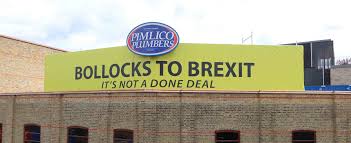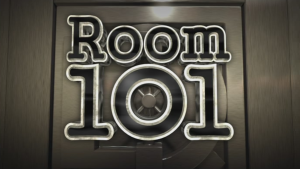There’s a book to be written about the language surrounding the whole Brexit business.
(Actually one has already been written, though it was published a year ago and doubtless needs a substantial update by now.)
You could make a strong case that language does much more than ‘surround’ the issue; it’s at the very heart of it, and throughout the saga has been used to shape and drive opinion.
This process began long before the referendum campaign. The EU was regularly portrayed by its detractors as being a body of ‘faceless, unelected bureaucrats’ who continually imposed heaps of ‘red tape’ on the UK.
Yet when you pick apart these phrases, you realise that they are deliberately putting a particular slant on what the EU does. Clearly there are direct elections to the European Parliament; the ‘unelected bureaucrats’ tag is generally directed at the European Commission. But while the Commission President and the Commissioners are not directly elected by the public, they are indirectly elected through being proposed by the elected governments of the member states.
And the much-maligned ‘red tape’ often refers to things like quality standards and workers’ rights – good things when they’re identified and described in that way.
But it was during the referendum campaign that the war of words was fought at its hardest – and won by the Leave campaign. While the Remain campaign struggled to find a memorable campaign slogan (I can’t even remember what it was), Leave came up with the non-specific but very powerful ‘Take Back Control’.

Whether the UK would actually have more control over its affairs on leaving the EU was neither here nor there; that phrase was something that millions latched on to and got behind. And there was another, unofficial, phrase which was used to reject any warnings from the Remain side that leaving would leave the country worse off: such misgivings were dismissed as ‘Project Fear’.
Other words swirling around the debate at the time worked to the advantage of Leave. They talked about being ‘free’ and ‘independent’, ‘reclaiming our sovereignty’ over ‘our laws, borders and money’. Some talked more darkly about the country being ‘flooded’ and ‘swamped’ by ‘swarms’ of migrants. What attempts there were by the Remain side to argue against the use of these terms failed miserably; detail and nuanced argument were no match for big, powerful words.
And so Leave won the referendum. But the linguistic battle didn’t end there.
Language has been used as a weapon at every stage since, from Theresa May coining the deliberately vague ‘Brexit means Brexit’ to try and keep different factions on side, to those still opposing Brexit being called ‘saboteurs’ and ‘traitors’. (At one stage, Mrs May tried to add some colour to her vision by saying that she would achieve a ‘red, white and blue’ Brexit – but this was just as meaningless since those are the colours of the French flag too.)
‘The will of the people’ has been invoked again and again as a vast body of opinion that should not be challenged – though Leave was supported by only just over half of those who voted in 2016, and no one knows with any certainty what the majority wants now that the consequences of Brexit are clearer.

Meanwhile the Remain side have referenced the view of the people in making the opposite case, calling for a ‘People’s Vote’ (rather than a ‘Second Referendum’, which would sound like simply re-running the first one). And before the summer’s European elections, the Lib Dems borrowed ‘Bollocks to Brexit’ from Pimlico Plumbers.
And before the summer’s European elections, the Lib Dems borrowed ‘Bollocks to Brexit’ from Pimlico Plumbers in a clumsy attempt to be more ballsy (literally) and populist.
Language has continued to play a central role as the threat (a loaded word in itself, I know) of a no-deal Brexit has risen over recent months. One side talks about ‘crashing out’ over a ‘cliff-edge’, while the other counters that while there may be some ‘bumps in the road’, these can be mitigated with a ‘managed no-deal’.
Both sides have laid claim to the word ‘democracy’, constantly using it to champion their diametrically-opposed views and aims. (In fact, a truce should be called over this word before it loses any meaning it still has.)
Shamefully, certain members of the Government have chosen to use words which deliberately allude to World War Two. The motion passed by Parliament to try to rule out a no-deal Brexit was described by several Cabinet ministers as a ‘surrender bill’. And worst of all, the Prime Minister recently accused his opponents of ‘collaborating’ with the EU. (He will certainly have known the implications of what he was saying, having been widely condemned in 2017 for warning the then French President Francois Hollande not to ‘administer punishment beatings to anyone who seeks to escape, in the manner of some World War Two movie’.)
If it weren’t for the fact that I would sound like Michael Gove sounding like Donald Trump, I would describe this as ‘sad’.
At some point, whatever the final outcome of this shitstorm (as Angela Merkel might call it), the huge division in our country will need to heal. Time – and a lot of it – will probably be the biggest dollop of societal Savlon. But given that language has played such a role in causing the rift, a different, softer, more considered and considerate use of words will also be needed to achieve a reconciliation.
I’m 58 years old as I write this. I hope I live long enough to see it.


